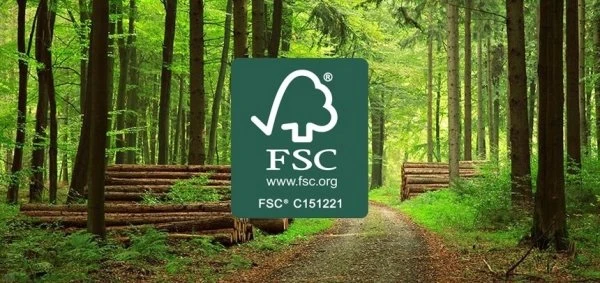FSC PRINCIPLES AND CRITERIA FOR FOREST STEWARDSHIP
The Forest Stewardship Council®
(FSC) is an independent, not-for-profit, non-government organization established to support environmentally appropriate, socially beneficial, and economically viable management of the world’s forests. FSC’s vision is that the world’s forests meet the social, ecological, and economic rights and needs of the present generation without compromising those of future generations
The Forest Stewardship Council (FSC)
The Forest Stewardship Council A.C. (FSC) was established in 1993, as a follow-up to the United Nations Conference on Environment and Development (the Earth Summit at Rio de Janeiro, 1992) with the mission to promote environmentally appropriate, socially beneficial, and economically viable management of the world’s forests.
Environmentally appropriate forest management ensures that the production of timber, non-timber products and ecosystem services maintains the forest’s biodiversity, productivity, and ecological processes. Socially beneficial forest management helps both local people and society at large to enjoy long-term benefits and also provides strong incentives to local people to sustain the forest resources and adhere to long-term management plans.
Economically viable forest management means that forest operations are structured and managed so as to be sufficiently profitable, without generating financial profit at the expense of the forest resource, the ecosystem, or affected communities. The tension between the need to generate adequate financial returns and the principles of responsible forest operations can be reduced through efforts to market the full range of forest products and services for their best value (FSC A.C. By-Laws, ratified, September 1994; last revision in June 2011).
FSC is an international organization that provides a system for voluntary accreditation and independent third-party certification. This system allows certificate holders to market their products and services as the result of environmentally appropriate, socially beneficial and economically viable forest management. FSC also sets standards for the development and approval of FSC Stewardship Standards which are based on the FSC Principles and Criteria. In addition, FSC sets standards for the accreditation of conformity assessment bodies (also known as certification bodies) that certify compliance with FSC’s standards.
Based on these standards, FSC provides a system for certification for organizations seeking to market their products as FSC certified.
The FSC Principles and Criteria
FSC first published the FSC Principles and Criteria in November 1994 as a performance-based, outcome-orientated, worldwide standard. The Principles and Criteria focus on field performance of forest management rather than on the management systems for delivering that field performance.
The FSC Principles are the essential rules or elements of environmentally appropriate, socially beneficial and economically viable forest management, and the Criteria provide the means of judging whether or not a Principle has been fulfilled. They are the foundation of the FSC certification scheme and, together with the Preamble and Glossary of Terms, constitute the core of a comprehensive standards package. There is no hierarchy between the Principles or between Criteria. They share equal status, validity and authority, and apply jointly and severally at the level of the individual Management Unit.
The FSC Principles and Criteria sit at the centre of the FSC standards framework and need to be applied together with other interlinked FSC documents including the following:
- Guidance, directives and other documents issued or approved by FSC.
- FSC Forest Stewardship Standards.
- Standards for particular vegetation types, products and services.
- Standards for particular types of management units, such as small and low-intensity managed forests or large-scale high-intensity plantations and conservation zones and protection areas, as approved by FSC.
This standards framework constitutes the comprehensive FSC system for voluntary, independent, third-party certification of the quality of forest management. Through adherence to the robust social, economic and environmental standards within the FSC Principles and Criteria, certified forest management enhances the well-being of local people, economic viability of the certificate holder (The Organization) and the environmental appropriateness of forest management.

